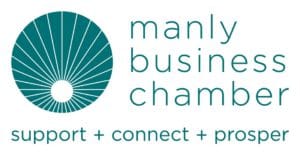10 REASONS WHY YOU DIDN’T LAND YOUR DREAM JOB . . . SOME OF THEM MAY SURPRISE YOU!
When you make it to the final interview for your dream job, only to be pipped to the post by another candidate, it can be disheartening. But let’s face it, sometimes you don’t even get that far in the first place. Applications can vanish into thin air never to be seen again. Why me, you might ask? Why not me?
Here are 10 reasons why you didn’t land your dream job . . . some of them may surprise you!
1. Your profiles don’t stack up
When you’re applying for a job, it makes sense to tailor your resume and cover letter to the organisation and the role. You might beef up the customer service content for a front-office position, for example. Just ensure that the essential framework (dates, roles, employers, job titles) is consistent across your online profile and application. Employers increasingly check out candidates’ online presence and are likely to spot any glaring differences.
2. Your social media presence raises a red flag
Be careful what you say and do on social media, even if your settings are private. If you’ve posted inappropriate photos on your Facebook account or expressed opinions that could be considered offensive, now could be the time to clean up your presence. You don’t want potential employers to stumble on something you might regret.
3. Your resume is not ATS-friendly
Applicant tracking systems (ATS) are widely used by organisations to streamline the recruitment and selection process. In order for your resume to be seen by a real person, you’ll need to optimise its format and content. Tips include using a readable font, such as Calibri or Arial, and sprinkling your resume with keywords used in the job ad.
4. Your skills are not up-to-date
Commitment to professional development is important, especially if you have been in the same job or with the same organisation for a while. Create a section on your resume to showcase the recent skills you have acquired, training courses you have attended and qualifications you have gained. An employer wants to take on people who are keen to develop their skill-set and grow in their role.
5. Your resume lacks facts and figures
Your resume might look great and read beautifully but what story is it telling potential employers? They want more than words; they are looking for evidence of what you can do. Percentage increases, dollar figures, sales revenue, size of team – all these details count in your favour. Leave them out and you could be waving goodbye to that interview opportunity.
6. Your approach is too casual
No-one is suggesting you start your cover letter or email with “Dear Sir or Madam” but consider who you are writing to. “Hey Sam!” is definitely not the best way to address a potential employer either. You should also avoid using common text abbreviations like “ur” and “thx” in communication with employers. This might seem like a no-brainer, but it happens!
7. You’re a bundle of nerves at interview
When the nerves take over, eye contact, speech, concentration, motivation – everything can be affected. And this can wreck your chances of success at interview. Fortunately, there are tried and tested methods that can help, such as listening to calming music, pre-empting questions and preparing brief responses, and controlled breathing exercises.
8. You come across as too keen at interview
Sometimes, you can overdo it in your determination to secure the role. You have the qualifications, experience and there is no doubt that you are super motivated. You need to hold back so your employer doesn’t suffocate under the layers you are piling on. Not just at interview but afterwards, too. One follow-up email and a call a few days later is enough. Anymore and you risk being an annoyance.
9. Too much negativity at interview
Equally too much negativity at interview is a big no-no. Bad mouthing previous employers and co-workers may set alarm bells ringing in employers’ ears. Try to put a positive spin on situations and focus on solutions rather than problems. People don’t want to work with someone who is always seeing things in a bad light.
10. Applying for the wrong job
It might be your dream job, but do you really have the skills, experience and qualifications that are required? If not, focus on filling those gaps so that next time a similar opportunity crops up, you’re well placed to apply.










